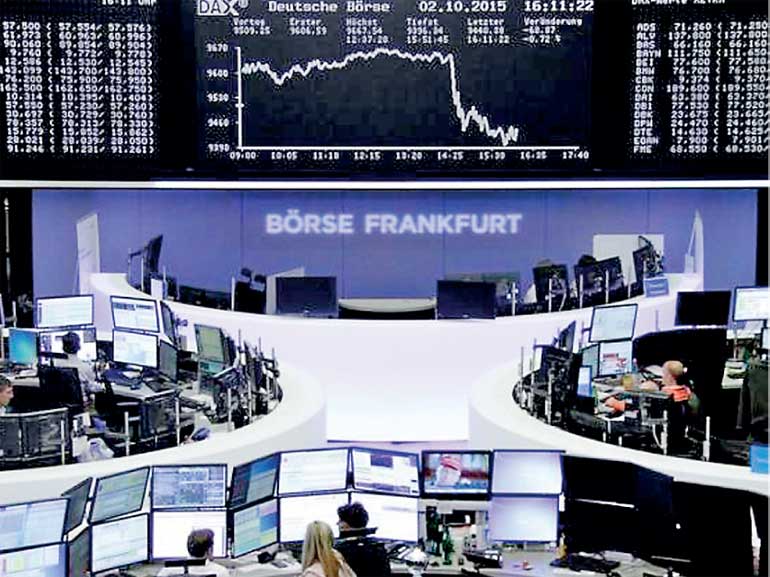Thursday Mar 05, 2026
Thursday Mar 05, 2026
Tuesday, 6 October 2015 01:17 - - {{hitsCtrl.values.hits}}
LONDON (Reuters): With the first Federal Reserve interest rate rise since 2006 now seen delayed, investors expected other major central banks to retain a dovish stance or even loosen policy further.
Friday’s shock US payrolls data showed just 142,000 jobs were created last month, compared with a forecast of 203,000, and that hourly wage growth fell.
This fuelled doubts over whether the world’s largest economy was strong enough to withstand an interest rate rise before the end of the year and meant the cheap funds that have lifted financial assets across the globe would be around for a while.
“After the (jobs) figures in the US, the market is more and more convinced that the Fed will delay rate hikes and the probability that the ECB will deliver more is also becoming a central scenario,” said BNP Paribas rate strategist Patrick Jacq.
Others said the Bank of Japan could ease policy as soon as this week.
Before Friday’s data, the Fed had been widely expected to raise U.S. interest rates before the end of the year. It decided not to move in September because of turmoil in global markets sparked by worries about China’s economic growth.
The pan-European FTSEurofirst 300 stocks index rose 1.8% to its highest since Sept. 22. France’s CAC index was up more than 2%.

European shares followed Asian stocks higher on Monday while the dollar was on the defensive after Friday’s weak US jobs data signalled the era of low-cost money had further to run
MSCI’s broadest index of Asia-Pacific shares outside Japan rose to a two-week high and was last up 1.7%, while Japan’s Nikkei closed up 1.6%.
Wall Street had already risen on Friday, and S&P index futures ESc1 signalled further modest gains later on Monday.
Chinese markets were closed for a holiday.
The prospect of lower rates for longer took the wind out of the dollar’s sails as US Treasury yields dipped. It fell 0.1% against a basket of currencies .DXY but remained well above lows struck after Friday’s numbers.
The euro was up 0.4% at $1.1250, although the yen was down 0.1% at 120 to the dollar as some analysts suspect the Bank of Japan could unveil further monetary easing measures as early as Wednesday.
Yujiro Goto, currency strategist at Nomura, said the expected delay to a Fed hike had hit the dollar.
“At the same time, we expect the other major central banks like the Bank of Japan and the ECB to remain dovish. So the euro’s rise above $1.13 could be capped, while dollar/yen is likely to be supported at 120 yen.”
Ten-year Treasury yields, which fell on Friday after the data, pushed lower still, to 1.98%.
German 10-year government bonds, the euro zone benchmark, held steady at 0.52%, though yields on higher-risk Italian and Spanish debt fell on the prospect of more bond-buying stimulus from the European Central Bank.
Portuguese 10-year yields fell 1.3 basis points to 2.30%, a five-month low, after the centre-right government of Prime Minister Pedro Passos Coelho won an election on Sunday that was a test of its tough austerity stance.
Oil prices, which rose 1% on Friday after the number of active U.S. oil rigs fell for a fifth consecutive week, made further gains as Russian said it would be willing to discuss the oil market with fellow producers. Crude prices have more than halved since mid-2014.
Brent LCOc1 was last up 12 cents at $48.25 a barrel.
“As Russia requested talks, investors seem to expect a possible reduction in oil output to be agreed during rebalancing procedures, with the global supply surplus being too burdensome,” said Yoo-jin Kang, commodities analyst at NH Investment & Securities based in Seoul.
Gold largely held on to gains made in its biggest one-day jump in nine years on Friday. It last traded at $1,136.50 an ounce.